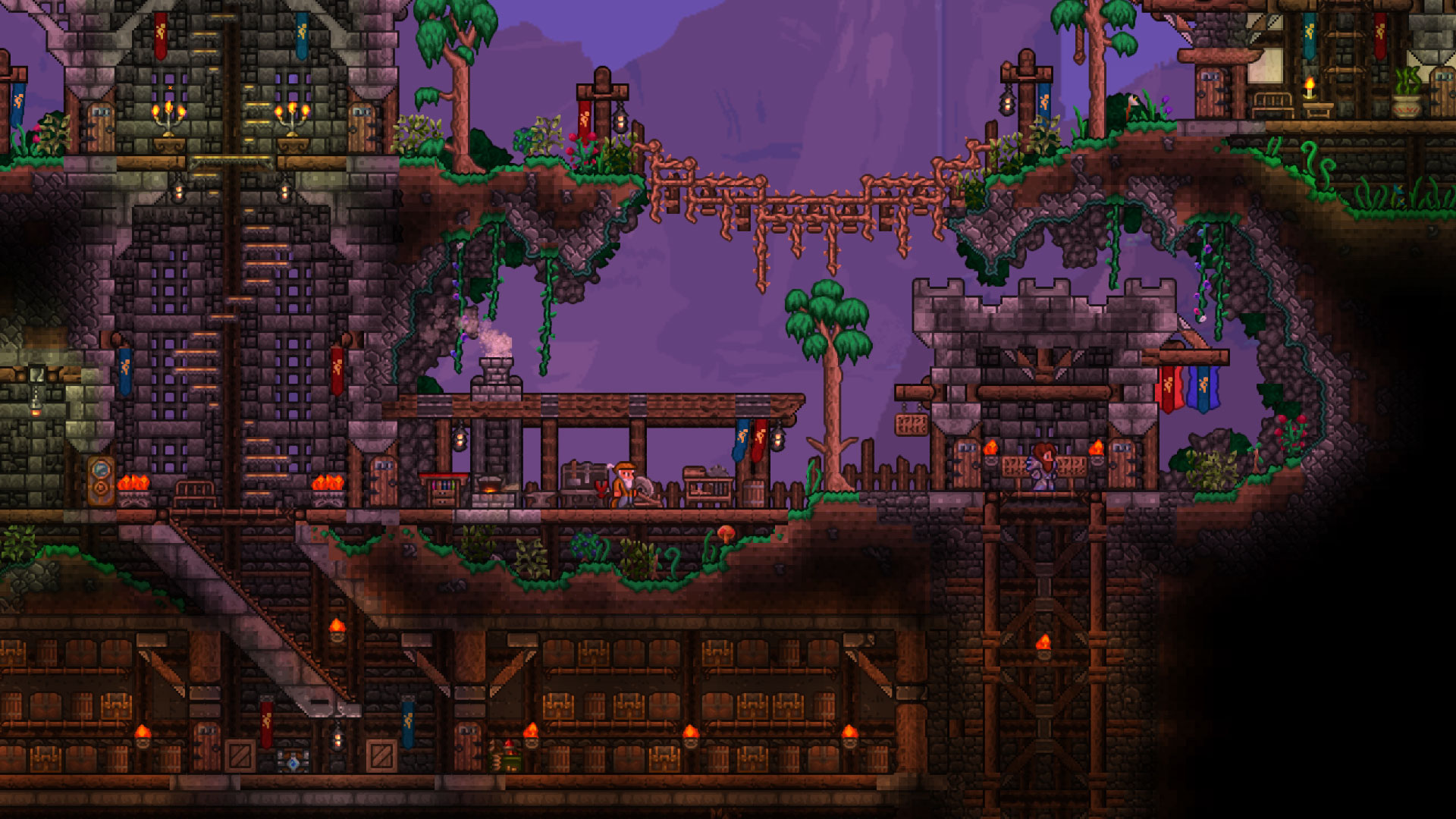Terraria developer Re-Logic responds to Unity Runtime Fee by donating $200,000 to open-source engines
The recent Unity announcement left the studio "dismayed"

Re-Logic, the indie game developer and publisher behind the 2D sandbox title Terraria, has condemned the newly announced Unity Runtime Fee, and has announced that it is donating a substantial sum of money to two different open-source game engines, to help keep them “powerful and approachable for developers everywhere”.
In a statement posted to Twitter, Re-Logic wrote: "The team at Re-Logic has been watching the recent events surrounding Unity with both interest and sadness. The loss of a formerly leading and user-friendly game engine to the darker forces that negatively impact so much of the gaming industry has left us dismayed, to put it mildly."
The studio explained that while it doesn’t use Unity outside of some elements on mobile and console platforms, it feels that it "cannot sit idly by as these predatory moves are made against studios everywhere".
"We unequivocally condemn and reject the recent TOS/fee changes proposed by Unity and the underhanded way they were rolled out," Re-Logic stated. "The flippant manner with which years of trust cultivated by Unity were cast aside for yet another way to squeeze publishers, studios, and gamers is the saddest part. That this wholly unnecessary move pushes things into the tragedy category - a cautionary tale the industry will not soon forget."
pic.twitter.com/ZqzGMTui0fSeptember 19, 2023
Continuing, the studio confirmed that it is donating $100,000 to both FNA and Godot, and will continue to sponsor them with monthly donations of $1,000. Explaining the decision, it wrote: "All we ask in return is that they remain good people and keep doing all that they can to make these engines powerful and approachable for developers everywhere."
In case you missed it, the Unity Runtime Fee is expected to come into effect on January 1, 2024 - it will charge developers a monthly fee based on the number of installs their games have, assuming that they pass a specified threshold. For developers using Unity Personal or Unity Plus, for example, the threshold (per game) is 200,000 lifetime installs and a total of $200,000 in revenue.
Unity’s announcement has caused an enormous amount of backlash, with hundreds of developers joining a protest against the changes. While Unity recently apologized for the “confusion and angst”, it’s unclear if it plans to readjust or reverse the policy. In Re-Logic’s statement, however, the studio wrote that even if Unity decided to do a U-turn, “the destruction of trust is not so easily repaired”.
Get daily insight, inspiration and deals in your inbox
Sign up for breaking news, reviews, opinion, top tech deals, and more.
Be sure to check out our list of the best indie games and our recommendations for the best PC games.

Catherine is a News Writer for TechRadar Gaming. Armed with a journalism degree from The University of Sheffield, she was sucked into the games media industry after spending far too much time on her university newspaper writing about Pokémon and cool indie games, and realising that was a very cool job, actually. She previously spent 19 months working at GAMINGbible as a full-time journalist. She loves all things Nintendo, and will never stop talking about Xenoblade Chronicles.